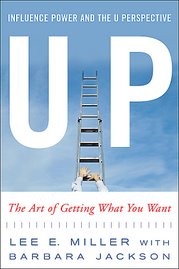
Here is a letter from the reader mailbag:
I noticed you've written several books. Can you help me with the steps toward publication? Does a book need to be fully written before I seek an agent? I believe our idea is unique; there is nothing like it on the market, and the book would include information that everyone needs, so I am confident it will sell. Do you have any advice about the legwork that needs to be done to get our book published? I don't want to waste time going down the wrong roads as an inexperienced writer. Like Italian Renaissance artist Michelangelo, who believed every stone had a sculpture trapped inside waiting for an artist to let it out, I believe everyone has a book in them. So, I asked an editor and a publicist what an aspiring first-time author should do if he or she wants to get a book published.
Nancy Hancock, executive editor for Rodale Publishing, offers the following advice:
Start with a great idea, one that requires more explanation than a short article on the internet could cover. Coin a catchy phrase that captures the essence of your topic and the imagination of potential readers, such as Daniel Goldman's "Emotional Intelligence" or Stephen Levitt's "Freakonomics."
Spend time developing a following to help sell the book, because getting a book published these days "has as much to do with the author's ability to generate sales as it does with great writing." Publishers want to know "the author has a following." That is understandable since, according to Publishers Weekly, of the several hundreds of thousands of books published each year, the average book in America sells only about 500 copies. So it makes sense publishers want authors who already have an established market for their books.
"Before you even write your book, build a platform establishing your expertise" by writing articles, giving speeches, blogging and networking, advises Annie Jennings, who runs Annie Jennings PR in Princeton.
Even if you are already an established expert and have written a "great" book, you still need to get it to the right publisher. If you are writing a book on investing, you don't want to submit it to a publisher specializing in children's books. Go to your local bookstore and see which publishers focus on books in your area of interest. Literary Marketplace (literarymarketplace.com) is also a good resource for aspiring authors. It provides a listing of publishers, agents, trade services and international resources.
Before you send a manuscript to a publisher, call to find out the procedures for accepting submissions. Sometimes a proposal will be acceptable; others may insist on a completed manuscript.
"If you have built a strong platform, an editor who specializes in your area will probably take a look at your proposal," although some publishers will not accept submissions unless they come from an agent, Hancock said.
Unfortunately, for someone who is neither an established author nor a celebrity, getting a good agent may be just as hard as getting a book published without one. Agents look for authors who are recognizable experts on timely topics, and will be able to help market their books.
If you can't find a publisher, a viable option today is to self-publish. Companies such as Amazon.com and Bookmasters (bookmasters.com) offer services that enable you to publish and distribute books that look professional without a publisher. What you don't get when you self-publish is the editing expertise, marketing power and the status that comes with working with a major publishing house.
It is not uncommon that, if a self-published book sells well, it will be picked up by a major publisher or will attract the interest of an agent. In fact, the best-selling career book "What Color Is Your Parachute? A Practical Manual for Job-hunters and Career-Changers" was originally self-published.
Whether getting a book published or moving your career forward, success depends on the same three qualities: believing in your work, being creative and never giving up. When my first book, "Get More Money on Your Next Job," was published, I got a contract based on the table of contents and one chapter. Because I didn't know it wasn't done that way, I simply used my network of friends to identify people they knew at major publishers. Based on those preliminary contacts, without an agent, I was able to sign a book deal with McGraw Hill, which, even in hindsight, was a pretty good deal.
A veteran human resources executive, Lee E. Miller is the author of "UP: Influence, Power and the U Perspective -- The Art of Getting What You Want," and co-founder of YourCareerDoctors.com, a website devoted to career success. Mail questions to Lee@YourCareerDoctors.com.
